So now that you are considering starting your own Vegan Journey, let’s talk a bit more about it. The vegan lifestyle has gained immense popularity in recent years, and for good reason. More and more people are making the switch to veganism to align their personal values with their diet and to contribute to a more sustainable and ethical world. Whether you’re considering becoming vegan or just curious about what it entails, this blog will introduce you to the vegan basics.
What is Veganism?
Let’s just start with this – I hate labels! I understand they exist and they have some purpose. What I don’t like is how labels can be used to exclude, create conflict, shame or bad feelings. Within the Vegan Community I see this all the time. Vegan, Plant Based, Whole Food Plant Based, Processed all being used in the wrong way. So many people are trying to improve themselves, make positive changes, and learn but are put down because they don’t fit into a certain box or they make mistakes along their journey. Let’s put all that aside and move forward and allow everyone to be the best they can be.
So, Veganism is a lifestyle choice that excludes all animal products. This means vegans don’t consume meat, dairy, eggs, or any other animal-derived ingredients. Veganism extends beyond diet and includes avoiding animal-derived products in clothing, cosmetics, and other everyday items. The core principles of veganism are compassion for animals, environmental sustainability, and a focus on personal health.
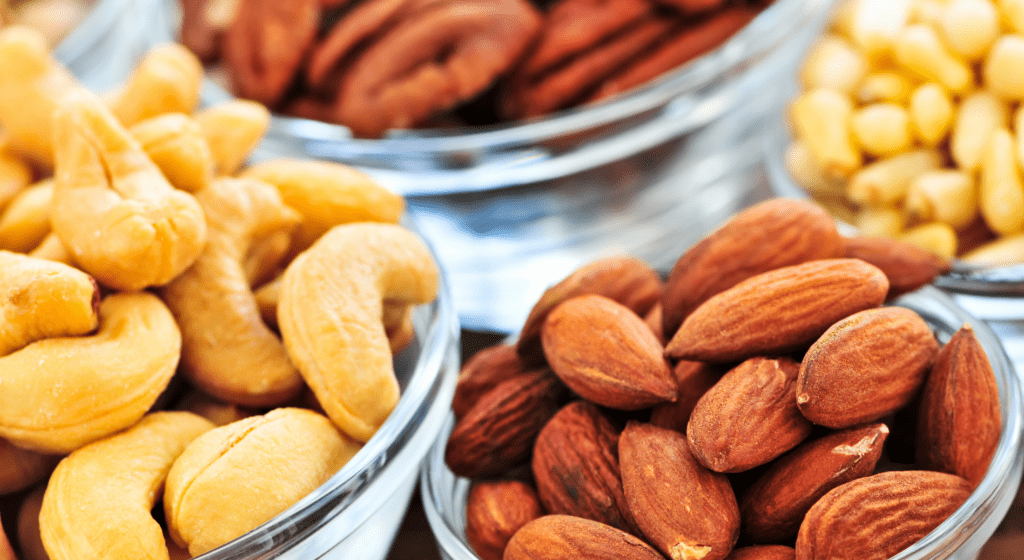
The Vegan Diet in a NUT SHELL (Get it?)
- Fruits and Vegetables: A vegan diet primarily consists of plant-based foods like fruits, vegetables, legumes, nuts, and grains. These provide essential vitamins, minerals, and fiber.
- Plant Proteins: To meet your protein needs, turn to sources like tofu, tempeh, beans, lentils, and quinoa. These foods are not only rich in protein but also packed with other nutrients.
- Healthy Fats: Avocados, nuts, seeds, and olive oil are great sources of healthy fats that provide energy and support various bodily functions.
- Whole Grains: Opt for whole grains like brown rice, whole wheat bread, and oats to get complex carbohydrates that keep you feeling full and energized.
- Plant-Based Dairy Alternatives: You can find a wide variety of dairy alternatives such as almond milk, soy milk, and coconut yogurt. OR, you can also make your own!
- Fortified Foods: To ensure you meet all your nutritional needs, consider fortified foods or supplements for vitamin B12 and vitamin D.
Vegan Ethics
Vegans choose this lifestyle for ethical reasons. We believe in the humane treatment of animals and aim to reduce harm by not consuming or using animal products. Many vegans also support animal sanctuaries and rescue organizations, where they can help care for animals in need. It is my theory that if you don’t feel a deep passion for animals, it will be difficult to maintain a vegan or plant based lifestyle. It all starts with the animals!
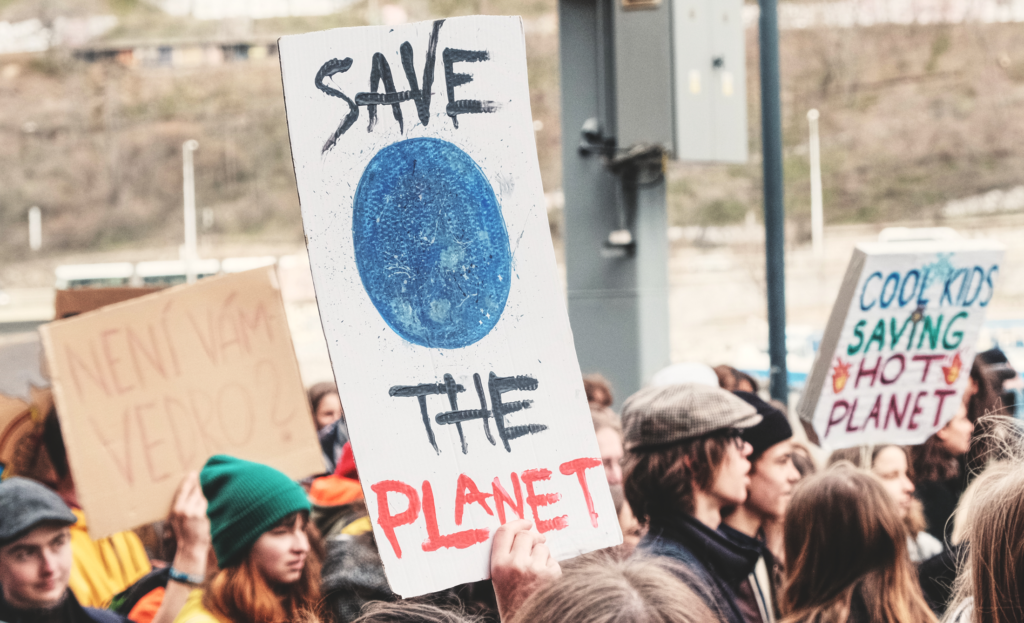
Environmental Impact
Vegans are motivated by environmental concerns. Animal agriculture is a leading contributor to greenhouse gas emissions, deforestation, and water pollution. By adopting a vegan diet, individuals reduce their carbon footprint and minimize their impact on the planet. It’s important to note that not all vegan diets are equally sustainable, as factors like the source of food, transportation, and packaging can still influence the environmental impact. However, choosing plant-based foods over animal products is generally considered an effective way to reduce your personal ecological footprint and contribute to environmental conservation.
- Animal agriculture is a significant contributor to greenhouse gas emissions, particularly methane and nitrous oxide. Going vegan reduces your carbon footprint, as plant-based diets produce fewer emissions than diets based on animal products.
- Livestock farming requires vast amounts of land for grazing and growing animal feed. Adopting a vegan diet reduces the demand for land, which can help combat deforestation and habitat destruction. Also, if this land was available, it could be used to grow additional fruits and vegetables.
- Animal agriculture is water-intensive. Producing meat, dairy, and eggs requires large quantities of water for both the animals and the crops they consume. A vegan diet reduces the water footprint.
- The runoff from animal farms can contaminate waterways with excess nutrients and harmful bacteria. This can lead to water pollution and dead zones. A vegan diet reduces the demand for such farms and, in turn, reduces pollution.
- Land conversion for livestock farming often leads to habitat destruction and a decrease in biodiversity. Adopting a vegan diet reduces the demand for such land use, helping to protect ecosystems and wildlife.
- In many parts of the world, forests are cleared to make way for livestock farming and the production of animal feed. Veganism can help slow down deforestation, which is crucial for climate stability and wildlife conservation.
- Animal agriculture is energy-intensive, from maintaining the animals to processing and transporting their products. Plant-based diets typically require less energy, contributing to lower energy consumption and reduced environmental impact.
- Plant-based agriculture generally uses land more efficiently, allowing us to feed more people with the same amount of land, thus reducing the pressure to convert natural ecosystems into farmland.

Health Benefits
A well-balanced vegan diet can offer numerous health benefits. Research has shown that it can reduce the risk of chronic diseases like heart disease, diabetes, and certain types of cancer. It may also lead to lower cholesterol levels and improved weight management. A vegan diet can minimize inflammation as well. It’s important to note that while a vegan diet can offer numerous health benefits, it’s not a guarantee of good health. A well-balanced and varied diet that includes a wide range of plant-based foods, such as fruits, vegetables, whole grains, nuts, seeds, and legumes, is crucial. Proper planning to ensure an adequate intake of essential nutrients like vitamin B12, iron, calcium, and omega-3 fatty acids is also necessary. And of course, combining your vegan diet with an active lifestyle just increases your chances for a long and healthy life.
A vegan diet, which excludes all animal products, can offer several health benefits when followed in a balanced and well-planned manner. It’s important to note that not all vegan diets are created equal, and the health benefits can vary depending on the individual’s food choices and overall lifestyle. Here are some specific health benefits associated with a well-balanced vegan diet:
- Reduced Risk of Chronic Diseases:
- Lower risk of heart disease: Vegan diets tend to be low in saturated fats and cholesterol, which can help reduce the risk of heart disease.
- Lower risk of hypertension: High blood pressure is less common in vegans, possibly due to lower sodium intake and higher potassium intake.
- Reduced risk of certain cancers: Some studies suggest that vegans have a lower risk of certain cancers, such as colon, breast, and prostate cancer.
- Weight Management:
- Vegan diets are often lower in calories and saturated fats, making them conducive to weight management and weight loss when compared to omnivorous diets.
- Improved Blood Sugar Control:
- Vegan diets can help improve insulin sensitivity and reduce the risk of type 2 diabetes.
- Digestive Health:
- A well-balanced vegan diet is high in dietary fiber, which can promote healthy digestion and reduce the risk of constipation and other digestive issues.
- Better Cardiovascular Health:
- The absence of animal products can lead to lower levels of LDL cholesterol, which is associated with a reduced risk of cardiovascular diseases.
- Lower Blood Pressure:
- A vegan diet, particularly one rich in fruits, vegetables, and whole grains, can help lower blood pressure, reducing the risk of hypertension.
- Bone Health:
- Some research suggests that well-planned vegan diets can support good bone health. Although they tend to be lower in calcium, they are often higher in magnesium and potassium, which can positively affect bone density.
- Reduced Inflammation:
- Vegan diets may help reduce systemic inflammation, which is associated with a wide range of chronic diseases.
- Improved Kidney Function:
- Plant-based diets can reduce the risk of kidney damage and may be beneficial for people with kidney disease.
- Enhanced Longevity:
- Some studies have indicated that vegans may have a longer life expectancy, likely due to the lower risk of chronic diseases.
Consulting with a healthcare professional or registered dietitian when transitioning to a vegan diet is advisable to ensure that you meet your nutritional needs and maintain good health.
Conclusion
Veganism is not just a diet; it’s a compassionate, sustainable, and health-conscious lifestyle. If you’re considering adopting a vegan lifestyle, start by educating yourself about plant-based nutrition and gradually transitioning your diet. With a growing variety of vegan products and the support of a thriving community, embracing veganism is more accessible than ever. By choosing veganism, you’re making a positive impact on the lives of animals, the environment, and your own health. The Average Vegan Dad blog has many wonderful and great tasting recipes to help you with your journey. Please feel free to contact me and I will offer all the help and support I can. We are stronger together – The Animals and The Planet thank you!
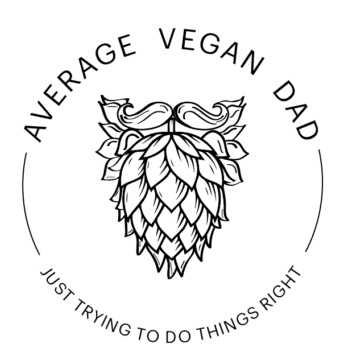
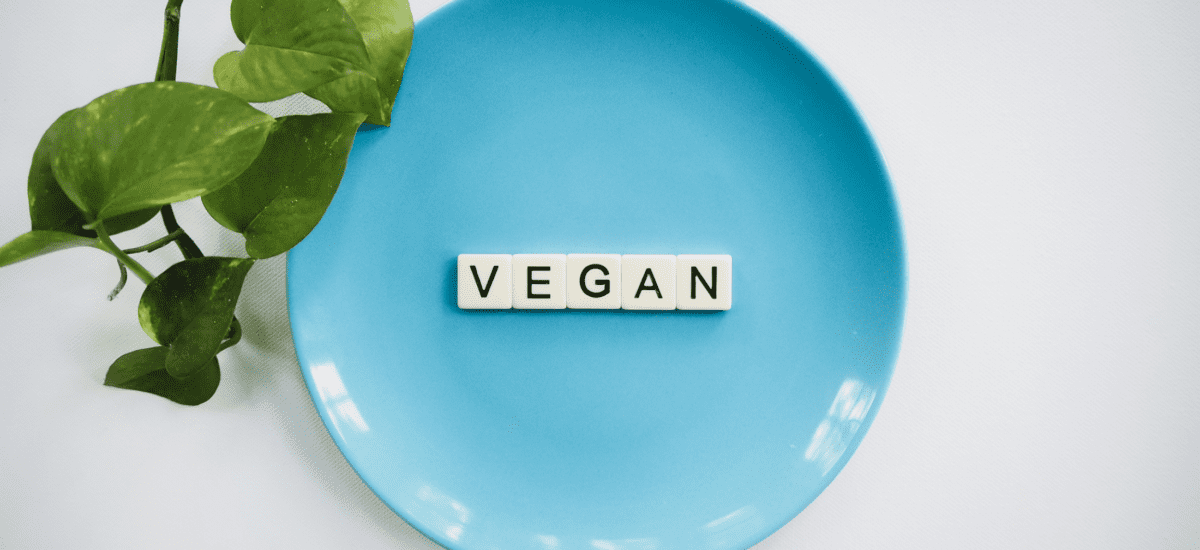
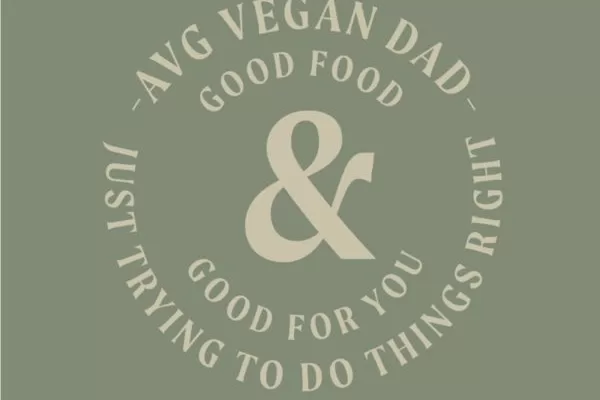
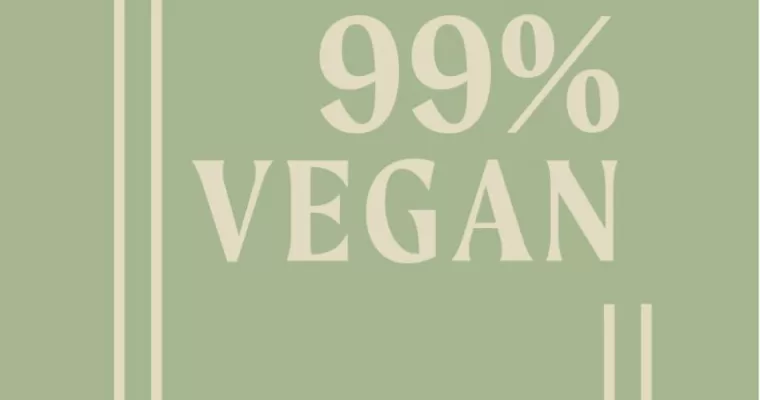




🙂